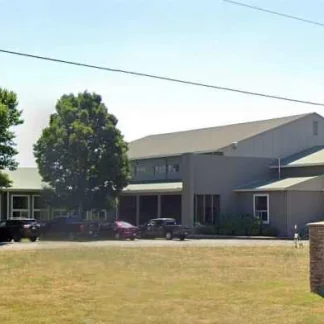Teen Challenge - Willamette Valley Campus
Shedd, Oregon, 31700 Fayetteville Dr Shedd, 97377
Available Programs
- Adult program
- LGBTQ program
- Program for men
- Young adult program
Insurance and Financial
- Self-pay options
- Private insurance
About this Facility
Teen Challenge - Willamette Valley Campus offers inpatient treatment for men with alcohol and/or substance addiction. The faith-based program includes individual counseling, group therapy, education and more. Teen Challenge - Willamette Valley Campus is located at Portland, Oregon.
An application fee of $500 is required at the time of admission to the program. Students earn approximately half of their tuition by working at TC Resale thrift stores during their program.
Teen Challenge – Willamette Valley Campus is broken down into two Phases. The Induction phase, referred to as Phase III, begins when the student enters into a four (4) month residential program. Upon completing the requirements for Phase III, the student advances to the eight (8) month residential Phase IV training program. Phase IV provides continued application of life changing principles and guidelines for a successful development and discipleship process.
Contact us for more information: (541) 491-1002

Contact Teen Challenge - Willamette Valley Campus
Connect with Teen Challenge - Willamette Valley Campus by calling their admissions team directly.
(541) 491-1002 Website Get Directions